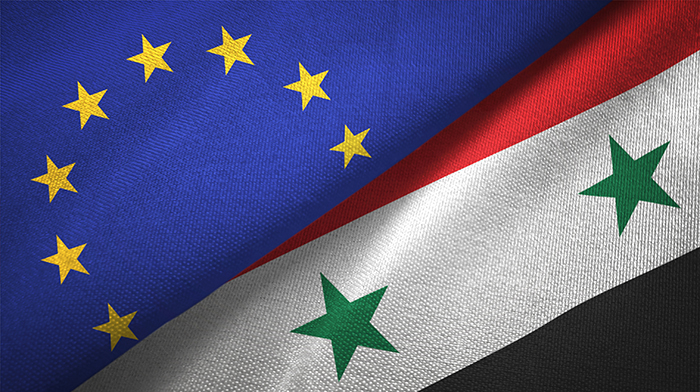Analyses / Middle East / North Africa
20 November 2024
Towards the normalisation of the Syrian regime in Europe?

While the Syrian conflict has stagnated in recent years with no opposition force emerging against the government, the regime of Bashar Al-Assad has managed to reassert itself as the only credible interlocutor for international diplomacy. This situation has allowed the regime to shift its focus from survival to normalisation with states that had previously been hostile towards it, as evidenced by its reintegration into the Arab League on May 7, 2023. Acknowledging the regime’s durability, several Arab states have sought to resume dialogue with the Syrian leader in the hope of influencing strategic issues, such as Iran’s influence and the trafficking of Captagon. The results so far have been modest: only a few concrete actions have emerged despite numerous official meetings.
This lack of collaboration with the regime reflects the impotence of Arab diplomacy, which struggles to offer attractive countermeasures to the Syrian regime, while revealing a fundamental obstacle: the internationalisation of the conflict and the sanctions imposed on the regime as a result.
Thus, the investment promises made by Arab states, essential for the country’s reconstruction, are hindered by international sanctions, particularly those from the United States. Through its Assad Regime Anti-Normalization Act of 2023, which complements the Caesar Act of 2019, the U.S. administration has sought to introduce provisions to block normalisation efforts with the Syrian regime, by sanctioning any individual or entity collaborating with it. The return of Donald Trump to the White House does not suggest any immediate change in policy, and the continuation of these sanctions, which primarily affect the civilian population, only perpetuates the current status quo.
In this context, who are the supporters of normalisation with the Syrian regime within Europe? What are their motivations and the limits of their approaches?
Which European countries are in favour of normalisation with the regime of Bashar Al-Assad? How does the Italian government plan to influence the European approach?
The European Union has generally supported U.S. policy and has consistently emphasised the need for a political process in accordance with UN Security Council Resolution 2254, particularly during the aid provided to Syria after the earthquakes of February 5 and 6, 2023.
However, some member states have expressed support for rapprochement with the Syrian regime, primarily in order to address the influx of refugees. Among them, the Italian government stands out and could play a leading role in this normalisation process. On September 20, 2024, Italy withdrew from the UN group tasked with monitoring human rights abuses in Syria. This discreet move reflects the Italian government’s desire to no longer participate in the criticism of the regime in order to initiate a rapprochement with it. In July 2024, Italy had already taken steps in this direction by appointing a permanent mission head in Damascus, with the goal of rethinking Italy’s strategy towards Syria. These initiatives are part of the strategy of Giorgia Meloni, the Italian Prime Minister, who aims to encourage European Union countries to conclude agreements with countries of origin or transit of migrants. The Italian government is working by establishing coalitions with other countries to create a movement that could shift the positions of European institutions. In this context, Italy’s Foreign Minister, Antonio Tanjini, accompanied by his counterparts from seven other countries (Austria, Croatia, Cyprus, the Czech Republic, Greece, Slovakia, and Slovenia), expressed in July 2024 their intention to re-engage in dialogue with Bashar Al-Assad. In a letter to Josep Borrell, the EU High Representative for Foreign Affairs and Security Policy, the ministers proposed committing to Syria to create “decent living conditions” that would facilitate “voluntary return” of refugees.
More broadly, the Meloni government’s strategy receives some support within the European Union. Alberto Núñez Feijóo, leader of the Partido Popular in Spain, for example, has expressed his support for the “Italian approach to immigration.” The rise of parties wishing to combat immigration could thus strengthen this trend, marking a break from the policy of sanctions. Outside the EU, UK Prime Minister Keir Starmer also appears to be favourable towards the Italian approach to immigration, with his government inclined to reach an agreement with Syria, which could contribute to a broader dynamic in favour of Bashar Al-Assad’s regime.
What are the political limitations of the project for the return of refugees to Syria? Why does European policy not adequately address the Syrian crisis?
These approaches focused on the refugee issue raise both moral and strategic questions.
According to Commissioner Hanny Megally, the return of refugees to Syria is still not feasible under the current conditions as of September 2024. By linking “decent living conditions” to the return of refugees, supporters of normalisation overlook the political and security reasons that force people into exile. Furthermore, the expansion of the war in Gaza into Lebanon has led to an unexpected scenario: the return of Syrian refugees from Lebanon to Syria, an argument that allows the Syrian regime to present a reassuring narrative about the security of its country, which is an asset in its normalisation efforts.
On a strategic level, this crisis illustrates the challenges posed by managing migration flows in conflict situations. These flows are difficult to contain and often result in abuse in host countries. According to the NGO Human Rights Watch, Syrians in Turkey are victims of illegal treatment, such as detention and forced deportation to the border. These measures therefore contravene the principle of “non-refoulement” in the 1951 Refugee Convention, which prohibits states from returning individuals to territories where they would be in danger. The use of third countries by the European Union, primarily Turkey, has not yielded results, and tensions around refugees in neighbouring countries, such as Lebanon, limit the options for restricting their arrival in Europe.
By not imposing clear conditions for resuming dialogue with Bashar Al-Assad, European states fail to offer viable exit strategies for the Syrian people. As long as the risks of persecution persist, Syrian refugees will inevitably remain hostile to any return. These approaches are mainly driven by internal political issues in these countries, neglecting the complexity of the Syrian crisis.
The question of normalisation with Syria reflects the ambivalence of European foreign policy, which struggles to implement a common position and find constructive alternatives.
Whether by maintaining sanctions or resuming dialogue with the regime, these strategies do not suggest a change in the nature of the regime, which remains dangerous for the majority of the population. Here, it is essential to understand the perspective of the Syrian leader, for whom controlling the majority of the territory and ensuring the survival of his regime are priorities that do not require concessions or the return of refugees.

